
Local Traditions & Customs in Rio de Janeiro, Rio de Janeiro, Brazil
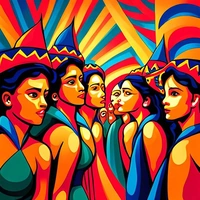
1. Carnaval
Carnaval in Rio is a vibrant festival with parades, music, and dancing. It showcases the city's rich culture and attracts visitors from around the world. The event is a great way to experience the local spirit and joy.
- Timing: Held annually in February or March.
- Location: Main events occur at the Sambadrome.
- Participation: Open to everyone, with ticketed events.
- Cultural Significance: Represents Brazilian culture and heritage.
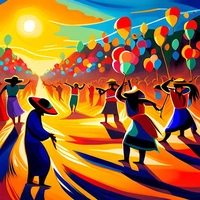
2. Festa Junina
Festa Junina is a traditional festival celebrated in June with folk music, dance, and food. It honors rural life and features colorful costumes. Visitors can enjoy local treats like corn cakes and mulled wine.
- Season: Celebrated in June.
- Activities: Includes square dancing and bonfires.
- Food: Features traditional Brazilian snacks.
- Cultural Roots: Originates from European harvest festivals.

3. Bossa Nova Music
Bossa Nova is a music genre that originated in Rio in the late 1950s. It combines samba rhythms with jazz influences. Listening to live Bossa Nova is a must for music lovers visiting the city.
- Origin: Developed in Rio de Janeiro.
- Influence: Mixes samba and jazz styles.
- Venues: Live performances in local bars and clubs.
- Famous Artists: Includes João Gilberto and Tom Jobim.
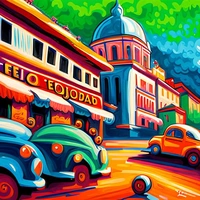
4. Feijoada
Feijoada is a traditional Brazilian stew made with black beans and various meats. It's a popular dish in Rio, often served on Wednesdays and Saturdays. Trying feijoada offers a taste of local culinary tradition.
- Main Ingredients: Includes black beans and pork.
- Serving Days: Commonly served on specific days.
- Accompaniments: Usually served with rice and orange slices.
- Cultural Importance: Considered a national dish of Brazil.

5. Capoeira
Capoeira is a Brazilian martial art that combines dance, acrobatics, and music. It has African roots and is practiced in many parts of Rio. Watching or participating in a capoeira session is a unique cultural experience.
- Origin: Developed by African slaves in Brazil.
- Elements: Incorporates music and acrobatics.
- Locations: Practiced in parks and cultural centers.
- Cultural Significance: Symbol of resistance and cultural identity.
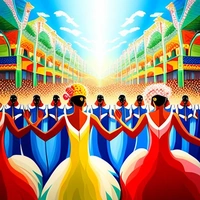
6. Samba Schools
Samba schools in Rio are community organizations that prepare for Carnaval parades. They offer samba classes and rehearsals open to the public. Visiting a samba school provides insight into the preparation for the grand festival.
- Purpose: Prepare for Carnaval parades.
- Activities: Offer samba classes and rehearsals.
- Community Role: Serve as cultural hubs in neighborhoods.
- Visitor Experience: Open to tourists for visits and participation.
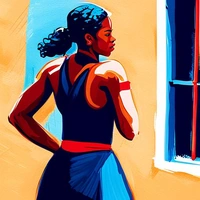
7. Candomblé
Candomblé is an Afro-Brazilian religion practiced in Rio, blending African traditions with Catholicism. Ceremonies involve music, dance, and offerings to deities. Attending a Candomblé ceremony offers a glimpse into spiritual practices in Brazil.
- Religious Roots: Combines African and Catholic elements.
- Ceremonies: Involve music, dance, and offerings.
- Deities: Worship of orixás, or spirits.
- Cultural Influence: Reflects Brazil's diverse spiritual landscape.
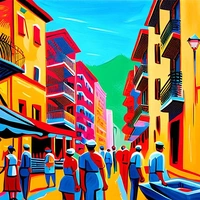
8. Rodízio de Churrasco
Rodízio de Churrasco is a Brazilian dining tradition where waiters serve various grilled meats at your table. It's a popular way to enjoy a variety of flavors in one meal. This dining experience is a must-try for meat lovers visiting Rio.
- Dining Style: All-you-can-eat meat service.
- Meat Variety: Includes beef, pork, chicken, and more.
- Service: Meats are served directly at the table.
- Culinary Experience: Offers a taste of Brazilian barbecue culture.
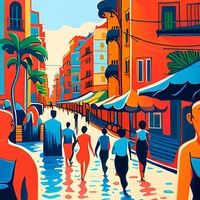
9. Carioca Lifestyle
The Carioca lifestyle is characterized by a laid-back attitude and love for outdoor activities. Locals enjoy spending time at the beach, playing sports, and socializing. Embracing this lifestyle helps visitors connect with the city's relaxed vibe.
- Attitude: Relaxed and easy-going.
- Activities: Includes beach outings and sports.
- Social Aspect: Emphasis on socializing and community.
- Cultural Identity: Reflects the spirit of Rio's residents.

10. Baianas de Acarajé
Baianas de Acarajé are women who sell acarajé, a traditional Afro-Brazilian street food, in Rio. Acarajé is a deep-fried ball made from black-eyed peas and filled with spicy shrimp. Trying this snack offers a taste of Afro-Brazilian culinary heritage.
- Vendors: Typically sold by women in traditional dress.
- Main Ingredient: Made from black-eyed peas.
- Filling: Filled with spicy shrimp and other ingredients.
- Cultural Heritage: Represents Afro-Brazilian cuisine.
